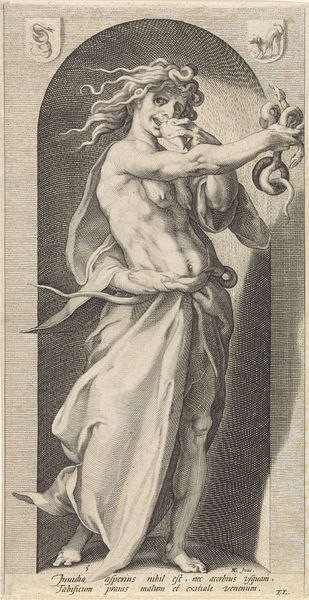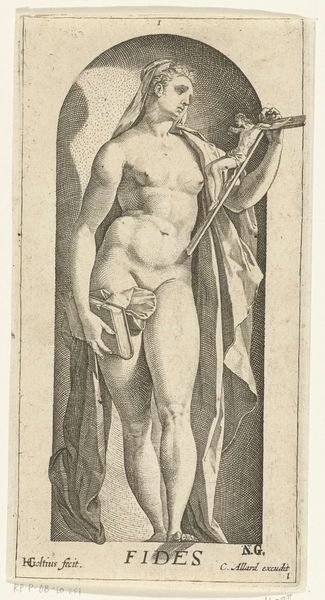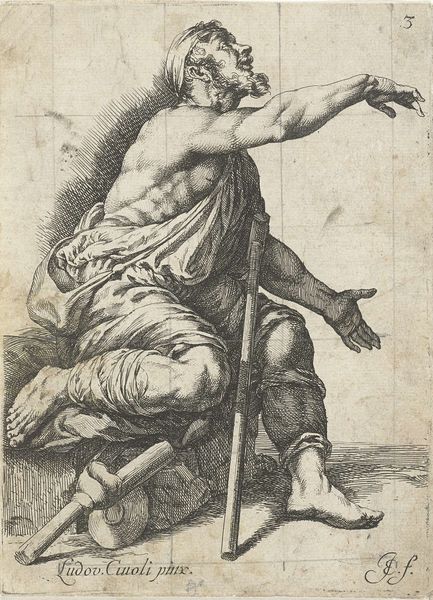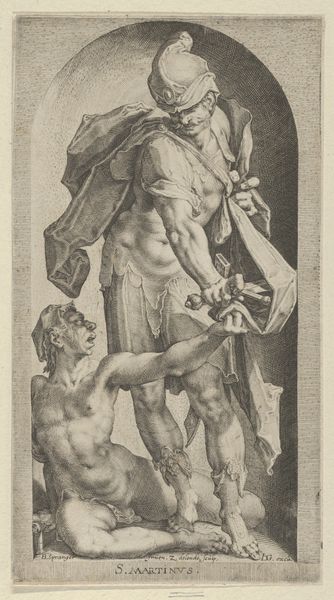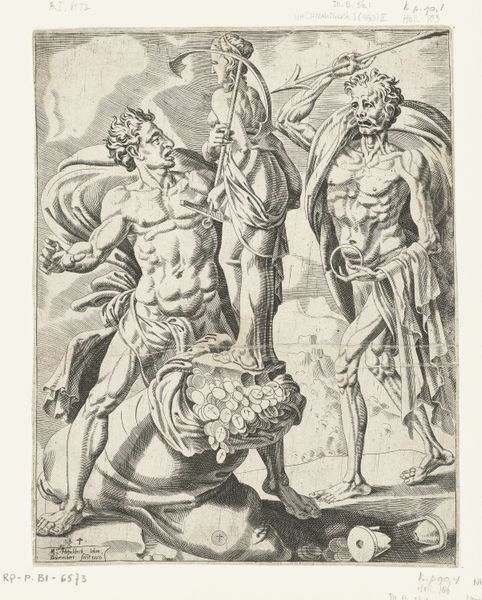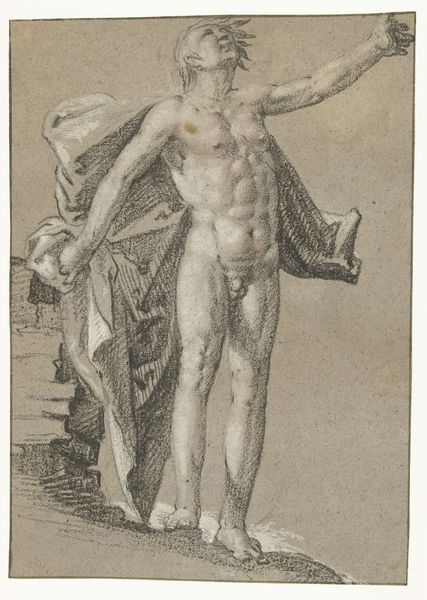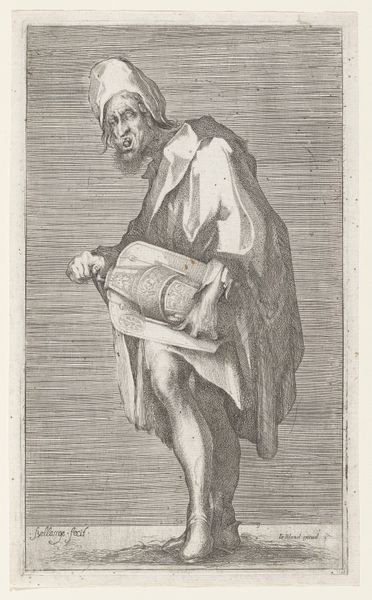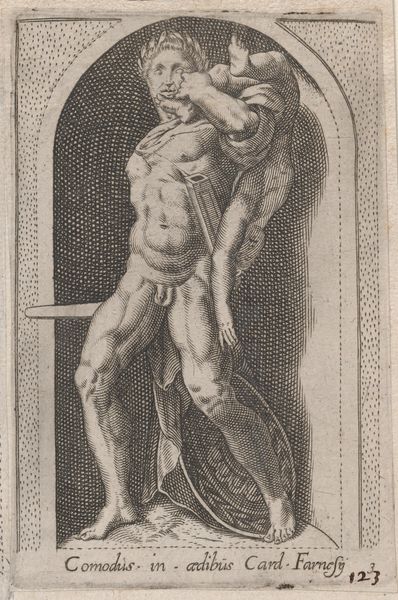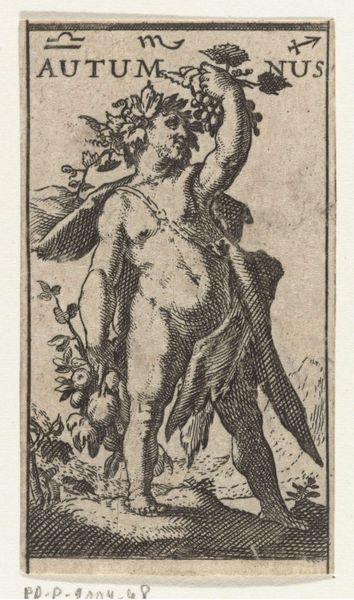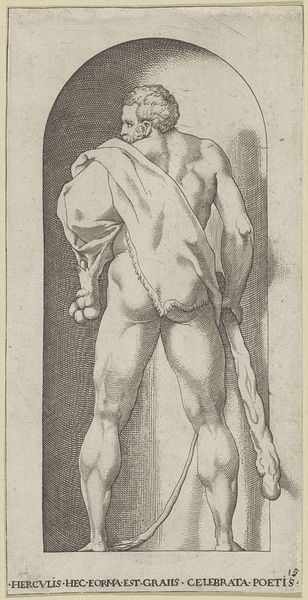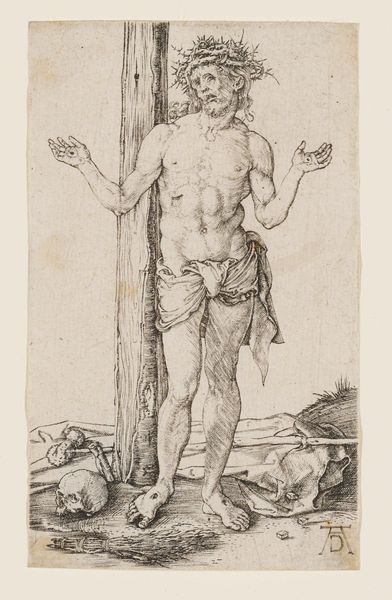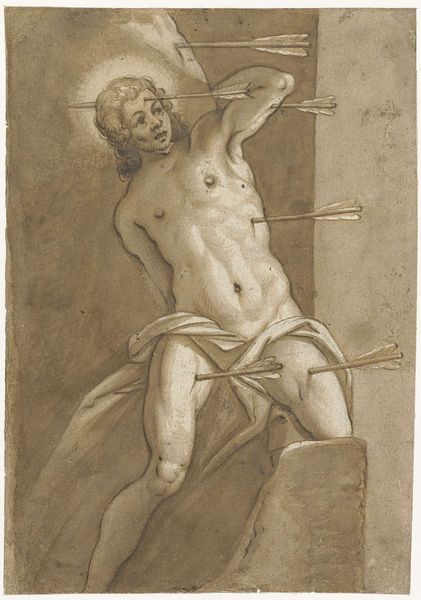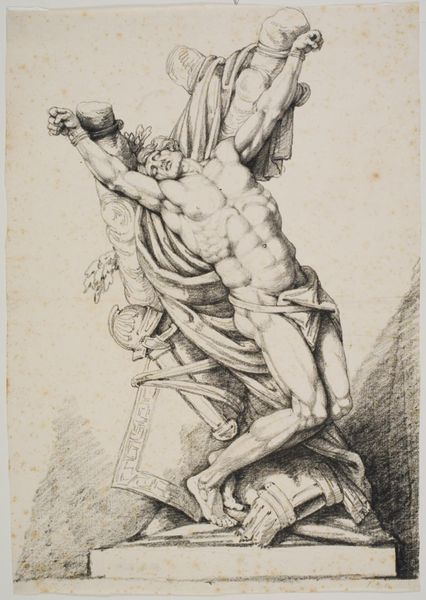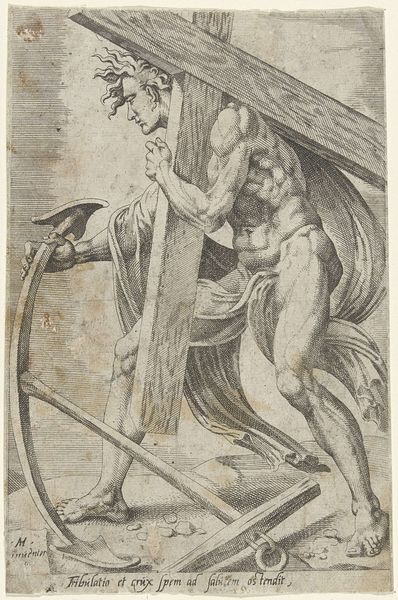
print, engraving
#
portrait
#
baroque
# print
#
figuration
#
history-painting
#
academic-art
#
engraving
Dimensions: height 179 mm, width 103 mm
Copyright: Rijks Museum: Open Domain
Curator: This engraving from the 1710s by Arnold Houbraken, titled "Personification of Poetry," offers us a fascinating glimpse into the artistic values of the Dutch Baroque. Editor: My immediate impression is one of idealized form, almost academic in its striving for perfect anatomy. The stark contrast in the engraving lends it a dramatic, even theatrical, quality. Curator: It certainly is. Consider the laurel wreath, a visual signifier instantly associating the figure with artistic and intellectual accomplishment—linking him to Apollo and the muses. That iconography was designed to elevate poetry. Editor: And the eagle at his feet! A symbol of power and inspiration, no doubt included to signal the lofty ambitions of poetry, but I wonder how the socio-political context shaped the viewing of such artworks. The patronage system, the role of art academies… it all feeds into how a work like this is understood. Curator: Absolutely. It speaks to the cultural capital invested in the arts. And observe how Houbraken depicts the figure in contrapposto, a pose adopted from classical sculpture meant to convey a sense of balance and ease, masking the intellectual rigor required to craft a good poem. Editor: I agree. Although, to a modern eye, the overtly symbolic elements might seem heavy-handed. The impact of history paintings like this lay in reinforcing shared cultural ideals. And how these were performed. This performativity aspect is further highlighted in its distribution as a print. The piece could be reproduced in mass, making its cultural ideals accessible to a greater public. Curator: Perhaps, but consider also how these symbols served as anchors, grounding the viewer in a tradition of artistic excellence. It's about more than just simple legibility. It’s about triggering layers of associations, evoking a deeper emotional resonance through recognizable visual cues. It links to how we process shared and intergenerational knowledge. Editor: You’ve given me a new perspective on its enduring cultural value! Thanks! Curator: And you, too! The exchange was delightful, prompting a welcome deeper examination of an apparently very classical piece of art.
Comments
No comments
Be the first to comment and join the conversation on the ultimate creative platform.
